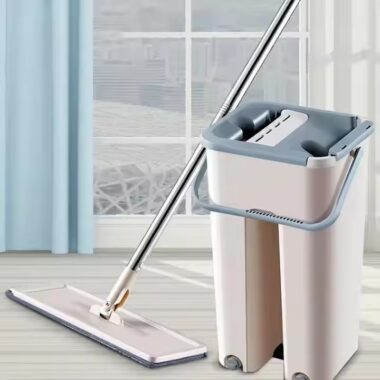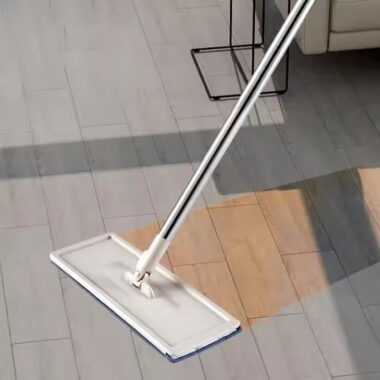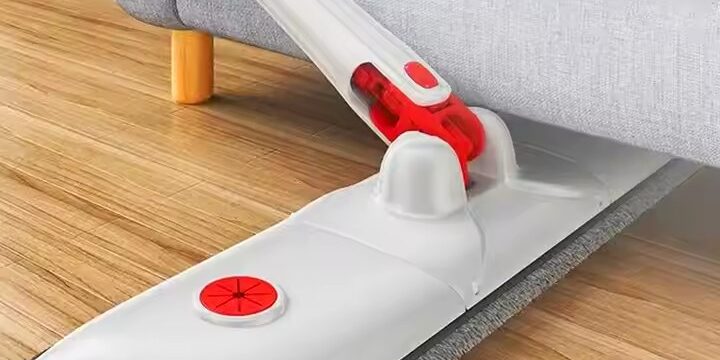🟢 Introduction
For companies sourcing cleaning products, mops remain one of the most essential categories. Whether for household cleaning or large-scale commercial use, choosing the right custom mop factory is critical. It is not just about finding the cheapest price—it is about securing a supplier that understands customization, quality, and wholesale efficiency. In this guide, we explore how mop factories operate, what customization options are available, and what wholesale buyers should expect when partnering with a reliable manufacturer.
🟢 Understanding Mop Materials
The foundation of any mop is its material. Each material impacts cleaning performance, durability, and cost. Buyers working with a mop manufacturer should know the advantages of each option.
-
Cotton: A traditional and cost-effective option, cotton is highly absorbent and ideal for general cleaning. Factories often recommend it for bulk orders in hospitality and janitorial markets.
-
Microfiber: Known for capturing fine dust and quick-drying properties, microfiber mops are popular in both household and professional cleaning. They support multiple washes, making them a sustainable choice.
-
Sponge: Lightweight and effective for everyday home cleaning. Wholesale sponge mops often target retail chains and supermarkets.
-
Polyester blends: Durable, low-cost, and quick to produce in large volumes. Many commercial cleaning suppliers prefer polyester for its balance of quality and price.
-
Handles and Frames: Buyers can choose stainless steel rods for durability or plastic handles for lightweight, budget-friendly solutions.
Selecting the right material ensures that wholesale customers meet their market’s cleaning needs while staying competitive in pricing.
🟢 Custom Design Options
One of the main advantages of working with a custom mop factory is flexibility in design. Buyers are not limited to standard mop models—they can request tailored features that align with their brand identity.
-
Size and Dimensions: From compact household versions to industrial-grade models, factories adjust dimensions to meet buyer preferences.
-
Colors and Branding: Custom colors are often requested to match private label requirements or to differentiate in crowded retail markets.
-
Handle and Rod Options: Telescopic handles, ergonomic grips, or stainless steel rods can be selected depending on end-user demands.
-
Packaging and Labeling: Many mop suppliers provide private label packaging, helping distributors and retailers strengthen brand recognition.
These customizations not only improve product performance but also allow businesses to stand out in their target markets.
🟢 Wholesale and Bulk Considerations
Factories are designed for wholesale scale. For buyers, this means competitive prices and bulk order flexibility. However, there are several points to evaluate before placing large orders.
-
Pricing Models: Unit costs decrease significantly with higher volumes. Reliable factories offer transparent price breakdowns for bulk purchases.
-
Minimum Order Quantity (MOQ): MOQs vary by material and design. A trustworthy mop supplier will communicate these clearly before order confirmation.
-
Production Timelines: Depending on the complexity of custom features, production can take between 25 and 40 days. Buyers should align delivery schedules with sales timelines.
-
Global Shipping Support: Many mop manufacturers handle export logistics, offering FOB, CIF, or door-to-door options for international buyers.
Understanding these details helps wholesale clients manage supply chain risks and ensure consistent product availability.
🟢 Why Work Directly with a Mop Factory?
Partnering with a mop factory instead of a trading company offers several key advantages.
-
Direct Communication: Buyers interact directly with engineers and production teams, ensuring clear understanding of requirements.
-
Lower Costs: Eliminating middlemen reduces overall procurement costs, which is essential in competitive markets.
-
Better Customization: Since factories control materials and machines, they can adapt designs more flexibly.
-
Quality Assurance: Buyers can request inspections or audits directly at the production site, ensuring products meet expectations.
-
Stronger Partnerships: Long-term cooperation with a factory builds trust and creates stability in product supply.
For businesses aiming to expand their cleaning product line, a custom mop factory is not just a supplier but a partner in growth.
🟢 Quality Control and Certifications
Quality control is a critical factor when sourcing cleaning products. A professional factory will have inspection systems in place, from raw material checks to final product testing. Buyers should look for certifications such as ISO standards or compliance with regional regulations. These certifications not only prove reliability but also make it easier for wholesalers to enter international markets with confidence.
🟢 Final Thoughts
Custom mops are more than just simple cleaning tools—they represent a product category where material choice, design, and supplier capability can influence business success. For wholesale buyers, working with a reliable mop manufacturer ensures competitive pricing, consistent quality, and custom solutions that meet specific market demands.
When planning your next order, start by identifying which material best suits your customers. Then, select a factory supplier that provides design flexibility, wholesale pricing, and reliable delivery schedules. By doing so, you not only secure a steady supply chain but also build a long-term partnership with a custom mop factory that supports your brand’s growth in both household and commercial cleaning markets.









